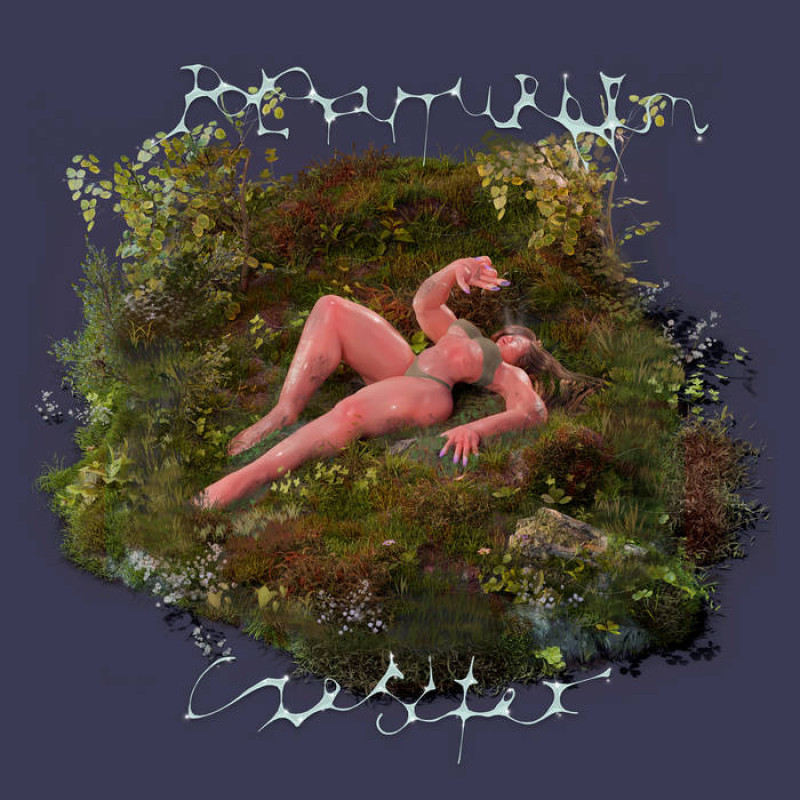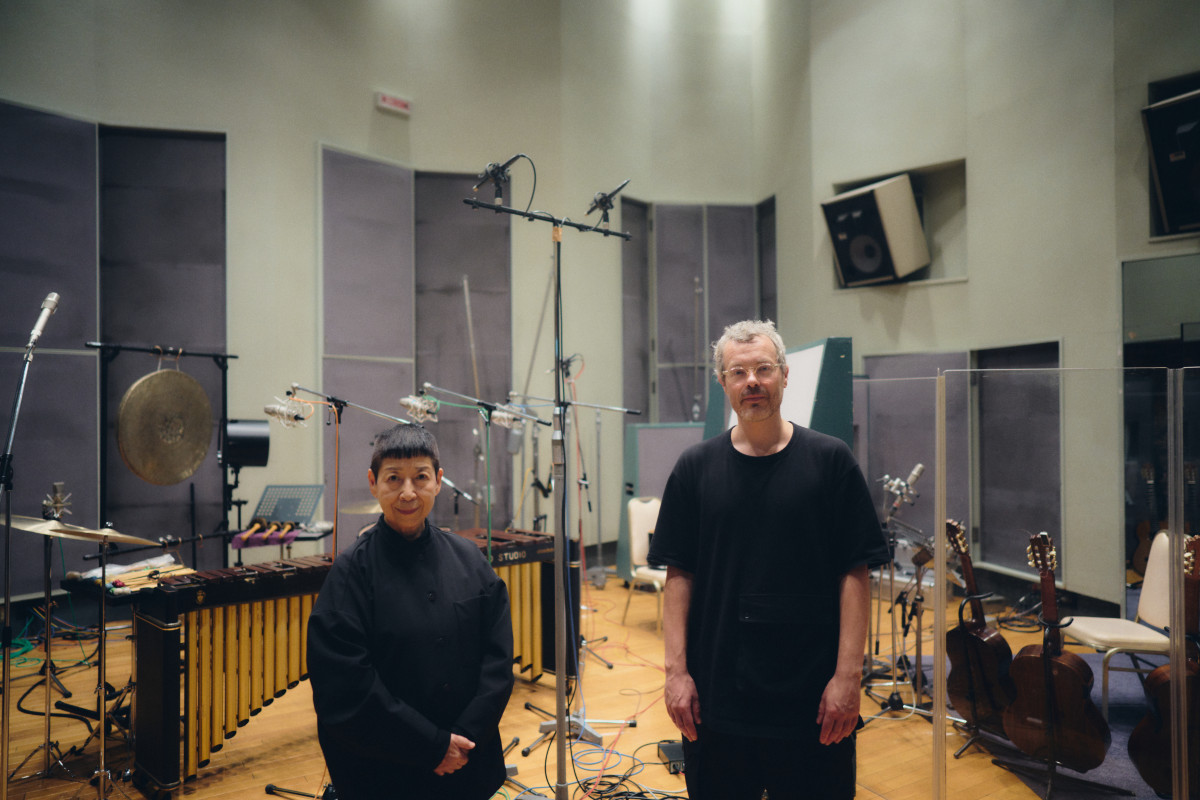My name is Mads Emil Dreyer – would you like to see my playlist?

»Music to me is – having spent a lot of time listening, composing, and thinking about it – still, essentially, a mystery.«

Polskfødte Szymon Gąsiorek har gjort det igen – skabt et overflødighedshorn af et album, der både overvælder og begejstrer med sit endeløse væld af eklektiske ideer, stilarter og lydkilder. Som det ofte er tilfældet med denne slags udgivelser, hvor hvert nummer har sin helt unikke identitet, så vil man hurtigt kunne udpege yndlinge.
En klar favorit melder sig da også med det samme. Åbningsnummeret »TAK TAK NIE NIE« eksploderer med en energi, der vækker mindelser om tidligt Boredoms, en tung omgang støjrock med råbevokal, elguitar, saxofon, pistolskud, skrig, synths, klaver og m.m. Også tredje nummer »STRACH LĘK NIEPOKÓJ« brillerer med en zeuhl-agtig fremdrift drevet af militaristisk vokal, insisterende trommer, kantet guitar og saxofon. Og selv uden for de umiddelbart mest imponerende numre er Polofuturyzm så spækket med højdepunkter og sjove overraskelser, at det halve kunne være nok. Tag som eksempel »90s [NADZIEJA]«, med en trance-synth, der hurtigt og effektivt saboteres af free jazzede trommer og saxofon, eller »JEDNOKIERUNKOWY«, der lyder som klassisk disco polo smidt i en blender og tilføjet pitch-shiftede vokaler og klubbede keyboards. Ej at forglemme det otte sekunder korte falde-på-halen klaverspil på »RĘCE«.
Polofuturyzm er båret af en manisk insisteren på aldrig at se sig tilbage. Det eneste konstante er fraværet af konsistens. Gąsiorek har været her før, men det føles stadig lige radikalt og forfriskende.

Endelig, efter deres koncert i Den Sorte Diamant for tre år siden, er samarbejdet mellem den danske guitarist Jakob Bro og den japanske perkussionist Midori Takada ude i albumformat – og det skuffer bestemt ikke.
Deres venskab kan umiddelbart virke overraskende, givet deres forskelligheder, men あなたに出会うまで / Until I Met You viser, hvordan det bygger på en fælles evne til at lukke øjnene og lytte. De giver hinanden plads til at udfolde det, de gør bedst: Bros simple, men raffinerede melodier og Takadas magiske lydflader. På titelnummeret skitserer Bro med akustisk guitar og sparsomme noder stregerne, som Takada fylder ud med boblende marimba og gong. På »A Brief Rest of Sisyphos« vender rollerne – her skaber Takada rammerne, mens Bro tilfører detaljerne.
De sublime søsternumre »Landscape II, Simplicity« og »Landscape I, Austerity« er mere abstrakte end de foregående værker. »Landscape II« emmer af håb og længsel med klangfulde chimes og perkussion, mens et midterstykke med guitar og klaver folder sig ud i melodisk harmoni. »Landscape I« bærer samme længsel, men med en mere melankolsk tone; en blidt bølgende marimba understøtter et vidunderligt smukt guitarstykke. Begge numre rummer en tydelig respekt og ømhed mellem musikerne: Bro og Takada lytter til hinanden med sjælden nærvær, og sammen skaber de noget helt særligt.

»Music to me is – having spent a lot of time listening, composing, and thinking about it – still, essentially, a mystery.«

»Musik er et mange-dimensionelt sprog, hvor vi kan tale om og være i mange slags følelser og sansninger. Musik kan selvfølgelig handle om kærlighed, fest og glæde, men også om alle mulige andre, mørkere, mere komplicerede og uforklarlige følelser. Ved at vise os dette mørke giver musikken os lov til at have det som vi faktisk har det, på en umiddelbar, før-sproglig måde.«
Jacob Anderskov er pianist, komponist og bandleder fra København. Han har udgivet over 25 album, modtaget flere priser og er af den internationale presse anerkendt som en markant stemme i nutidig musik. Hans projekter spænder fra fri improvisation til komponerede værker for større ensembler, ofte med nye broer mellem det skrevne og det åbne. Siden 2019 er han professor ved Rytmisk Musikkonservatorium.

»Music for me is a universal tool for opening myself for feelings. It may be anger. It may be happiness or sadness. Music may make you wanna dance or cry. But it never leaves you indifferent to the emotional load it brings. Good music, at least. Music may tell stories. It may as well be a background, or a soundtrack for the moment, for the day, for life. That being said, music for me is a company for everyday. And I’m quite lucky that it’s my company at work as well, I guess.«
Jan Janczy is a Polish journalist and radio host at Radio Nowy Świat. His main fields of professional interest are Northern Europe, international affairs and music. He interviewed among others 3x Grammy Awards winner Fantastic Negrito, Röyksopp, Alabaster DePlume, Archive, Trentemøller and Mogwai. In 2024 together with JazzDanmark, Kultur(a) and Radio Nowy Świat he released a podcast series devoted to the history of Polish-Danish jazz connections. He is a Swedish philologist by education.

En nykomponeret opera i en retssal lyder måske som et banalt greb. Men da jeg træder ind i ventesalen i Aarhus’ Retten til Niels Rønsholdt og Louise Becks Den Stærkes Ret – Den Svages Pligt, er jeg i tvivl, om jeg er gået forkert. Et aflangt rum, borde spredt ud, balkonen ovenover – og så et nodeark i en glasmontre, der formentlig normalt udstiller gamle lovdokumenter. Scenografien er diskret, men den juridiske ramme sætter straks tanker i gang om lov, magt og retfærdighed.
Snart træder næsten 20 sangere frem på balkonen. Musikken er tonal, båret af klangfylde og gentagne fraser, der gradvist forskydes som i en kanon. Man fornemmer lån fra minimalismen, men også en næsten folkelig enkelhed, der gør koret både dragende og foruroligende. Plottet – en datter, der opsøger sin fars spøgelse for at kræve hans våben – bliver kun antydet i brudstykker. Det er stemningen, der driver værket, og det forvandles radikalt, da sangerne forlader balkonen og stiller sig blandt publikum, mens tre dansere bevæger sig gennem salen.
Et nøgleøjeblik opstår, da koret pludselig slår stemmegafler an og placerer dem på bordene, så et vibrerende »wuu-uu« fylder rummet. Gåsehuden er øjeblikkelig. Kort efter synger de direkte til os, med intens øjenkontakt. Det føles både intimt og grænseoverskridende, som at blive tiltalt i en retssag uden mulighed for at svare. Jeg ønskede at kigge væk, men blev fanget i pligten til at holde blikket. Her blev titlen kropslig: den svages pligt at underkaste sig.
Som værket ebber ud, vender alle sangerne sig mod faderen og allierer sig med datteren. Bøger flås ned fra reolerne, sider rives itu, og mens der synges »Lyt og lær«, flimrer Orwells 1984 i baghovedet. Det er både urovækkende og uhyggeligt aktuelt i en tid, hvor autoritetstro og manipulation igen spiller en rolle i det offentlige rum.
Den Stærkes Ret er en af de mest intense musikalske oplevelser, jeg har haft i årevis. Den forener æstetik, krop og samfundskommentar på en måde, der får én til at gyse. Jeg venter allerede på akt to og tre.